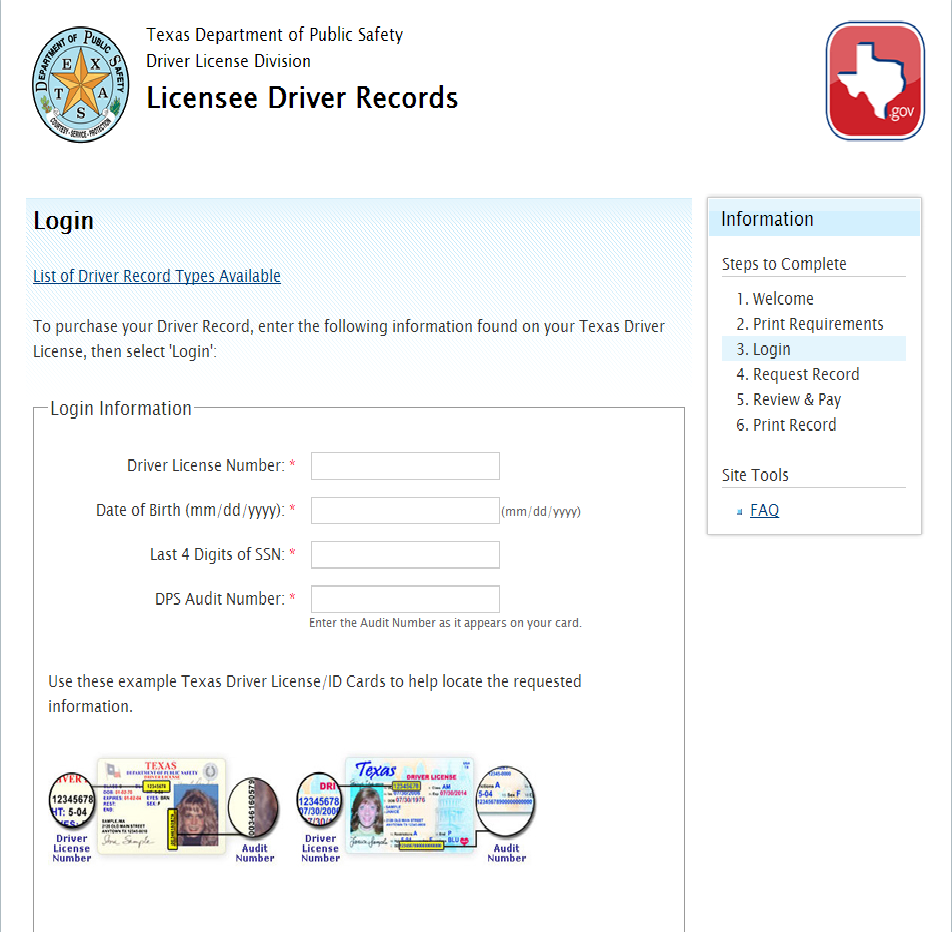Texas Driving Record – How Long Does an Accident Stay
It’s important to understand the long-term effects of a car accident on your record, especially if you’re concerned about the impact it could have on your insurance rates. In this post, we’ll be demystifying Texas car accidents and answering the question: how long will they stay on your record?
We’ll look at the different types of car accidents, the laws surrounding them, and how they can affect your driving record. Whether you’re a seasoned driver or a new one, this post will provide the information you need to navigate the aftermath of a car accident in Texas.
How are car accidents recorded in Texas?
In Texas, car accidents are recorded in a couple of different ways. The first is through your driving record, which the Texas Department of Public Safety maintains. This record includes information about any accidents you’ve been in and any traffic violations you’ve received. Car accidents are also recorded through your insurance record.
When you’re involved in a car accident in Texas, it’s important to understand that it will stay on your driving record for some time. This is because insurance companies use your driving record to determine your risk level as a driver. If you’ve been in multiple accidents, you may be considered a higher risk, and your insurance rates may increase.
In Texas, most minor accidents will stay on your driving record for three years. This includes accidents where the total damage is less than $1,000, and there were no injuries or fatalities. More serious accidents, such as injuries or fatalities, may stay on your record longer.
It’s also important to note that if you’re found to be at fault in an accident, this will also be noted on your driving record. This can have a significant impact on your insurance rates, as well as your ability to drive legally in Texas. It’s always a good idea to drive safely and avoid accidents whenever possible, but if you are involved in one, it’s important to understand how it will be recorded and how long it will stay on your record.
Types of accidents on your driving record
Several types of car accidents can end up on your driving record, and they can vary depending on the severity of the incident. Some of the most common accidents that can be recorded on your driving record include at-fault accidents, no-fault accidents, hit-and-run accidents, and accidents involving injuries or fatalities.
At-fault accidents occur when you are deemed responsible for causing the accident. This can include rear-ending another vehicle, running a red light, or failing to yield the right of way. If you are found to be at fault for an accident, it will typically stay on your driving record for three to five years.
On the other hand, no-fault accidents are accidents in which no one is found to be at fault. These accidents are less common but can still be on your driving record. Typically, a no-fault accident will stay on your record for three years.
Hit-and-run accidents occur when you leave the scene of an accident without stopping to exchange information or render aid. These accidents are taken very seriously and can result in serious consequences, including fines, license suspension, and even jail time. A hit-and-run accident will typically stay on your driving record for at least three years.
Finally, accidents involving injuries or fatalities are the most serious types of accidents and can have lifelong consequences. If you are involved in an accident that results in serious injury or death, it will stay on your driving record for the rest of your life. It’s important to remember that every accident is different, and the severity of the incident will determine how long it stays on your driving record.
How long do car accidents stay on your driving record in Texas?
If you’ve been in a car accident in Texas, you may wonder how long it will stay on your driving record. The answer depends on various factors, including the accident’s severity and whether or not you were at fault.
In Texas, accidents that you were at fault for will stay on your Texas driving record for 3 years from the accident date. If you were involved in an accident on January 1, 2023, and you were at fault, it will remain on your record until January 1, 2026.
It’s important to note that it would not appear on your driving record if you were not at fault for the accident. Additionally, if the accident is severe and involves a fatality or serious injury, it may stay on your record indefinitely.
For more serious accidents with injuries, fatalities, or significant property damage, the accident may stay on your driving record for up to 10 years. Additionally, if you were convicted of a traffic violation related to the accident, such as reckless driving or driving under the influence, the violation and the accident may stay on your record even longer.
Having an accident on your driving record can impact your car insurance rates, as insurance companies often use this information to determine your level of risk as a driver. If you are concerned about how an accident may impact your insurance rates, it’s important to shop around and compare quotes from different providers. In some cases, you may find a provider willing to overlook a previous accident or offer a lower rate despite it being on your record.
Impact of car accidents on your driving record
Car accidents can have a significant impact on your driving record. In Texas, car accidents will generally stay on your driving record for three years from the accident date. During this time, the accident will be visible to insurance companies and potential employers who conduct background checks.
If you were at fault in the accident, it could result in points being added to your driving record. Points indicate your driving behavior and are typically added for traffic violations and accidents. The number of points added will depend on the severity of the accident and the extent of the damages caused.
Having points on your driving record can have serious consequences. It can result in higher car insurance rates, and if you accumulate enough points, your driver’s license could be suspended. This is why driving safely and avoiding accidents whenever possible is important.
If you have been involved in a car accident, it’s important to take steps to protect your driving record. This includes contacting your insurance company, seeking medical attention, and obtaining a police report. Additionally, if you were not at fault in the accident, you may seek legal representation to protect your rights.
How to check Texas driving record for car accidents
If you’re a driver in Texas, it’s important to know what’s on your driving record. This includes any car accidents you’ve been involved in. Your driving record is a comprehensive summary of your driving history, which includes your license status, any traffic violations, and any accidents you’ve been involved in.
To check your driving record in Texas, you can request a copy from the Texas Department of Public Safety (DPS). This can be done in person at a DPS office or online through their website.

To request a copy online, you must create an account on the DPS website and provide some personal information, including your driver’s license and Social Security numbers. There is a fee to obtain a copy of your driving record.
Once you have your driving record, you can review it to see if any car accidents are listed. Reviewing your driving record regularly is important to ensure that the information is accurate and up-to-date. You can request that errors be corrected if you find any inaccuracies. By staying informed about what’s on your driving record, you can take steps to improve your driving habits and keep your record clean.
How to clear your driving record of car accidents
If you have had a car accident and it’s on your driving record, you may wonder how to clear it. The good news is that in Texas, it is possible to have car accidents removed from your driving record, but there are some things to consider.
First, you must be eligible to have the accident removed. Only accidents that were not your fault can be removed from your record, and only if the insurance company paid less than $1,000 for property damage or there were no injuries.
To begin having an accident removed from your driving record, you must request a copy of your driving record from the Texas Department of Public Safety. Once you have received your record, review it to ensure all the information is correct. If there are errors, you can request that they be corrected.
Next, you must contact the insurance company that paid for the accident and provide the necessary documentation to prove that the accident was not your fault and that the payout was less than $1,000. If the insurance company agrees, they will notify the Texas Department of Public Safety to have the accident removed from your driving record.
It’s important to note that removing an accident from your driving record can take some time, so it’s essential to be patient and persistent. By following these steps, you can clear your driving record of car accidents that were not your fault and ensure that your record accurately reflects your driving history.
Can an Accident Be Removed from Texas Driving Record Early?
Many Texas drivers wonder if they can remove accidents from their driving records before they naturally drop off. The answer is both yes and no.
The Department of Public Safety (DPS) maintains TxDot driving records. Accidents and other violations will stay on your record for a while.
- Accidents involving injury or death will stay on your record for 10 years from the crash date.
- Accidents involving only property damage will stay on your record for 7 years from the crash date.
However, Texas law allows drivers to request that the DPS remove accidents older than the specified time frames. This process is known as “non-disclosure.”
To qualify for non-disclosure, the accident must have occurred at least 3 years ago, and you must not have been convicted of any other traffic violations during that time. Additionally, non-disclosure only applies to accidents that result in non-criminal traffic violations.
It’s important to note that non-disclosure does not actually remove the accident from your record.
Instead, it removes the accident from the record available to the public and insurance companies. Law enforcement and the courts will still have access to the information.
In summary, while you can request that an accident be removed from your record through non-disclosure, it is not a guaranteed process and only applies to certain accidents.
Conclusion
The length of time a car accident stays on your record in Texas depends on various factors, including the severity of the accident and the type of record in question. Minor accidents may only stay on your driving record for a few years, while more serious ones may remain indefinitely.
It’s important to note that having an accident on your record can have serious consequences, such as higher insurance premiums and difficulty obtaining certain jobs that require driving. Therefore, avoiding accidents in the first place is crucial, such as practicing safe driving habits and maintaining your vehicle properly.
If you are in an accident, report it to the appropriate authorities and contact your insurance company immediately. Additionally, consider seeking legal advice from an experienced Texas car accident attorney to protect your rights and help you navigate the complex legal process.





Accidents can have a significant impact on your driving record in Texas. Generally, an accident will stay on your record for a period of three years. During this time, insurance companies will take the accident into consideration when determining your rates. It’s crucial to drive safely and avoid accidents to maintain a clean driving record and keep your insurance premiums low.